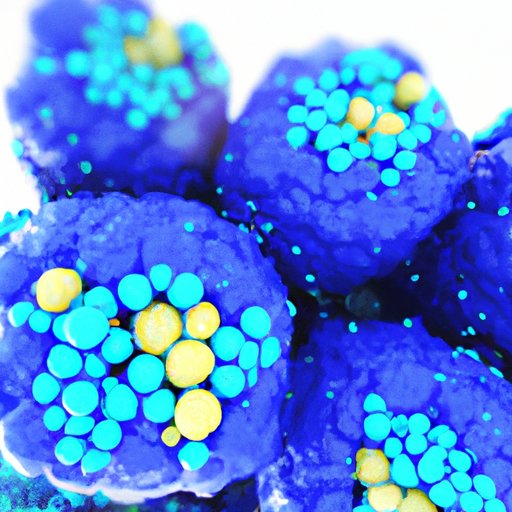Introduction
CAR T therapy, also known as chimeric antigen receptor T cell therapy, is an advanced cancer treatment that has taken the medical and scientific world by storm. The treatment has been recognized as a significant breakthrough in cancer research, offering new hope for patients who have exhausted conventional treatments. CAR T therapy is a type of immunotherapy that harnesses the power of a patient’s immune system to fight cancer.
The purpose of this article is to provide a comprehensive exploration of the history and evolution of CAR T therapy, personal experiences of patients who have undergone the treatment, current advancements in research and development, technical explanations of how the treatment works, and ethical and legal considerations surrounding its accessibility and cost. The article concludes with a personal opinion essay and final thoughts on the future potential of CAR T therapy.
Historical perspective
The inception of CAR T therapy can be traced back to the 1980s when scientists began exploring the potential of genetically modifying T cells to attack cancer cells. In the early 2000s, clinical trials began with promising results. However, it wasn’t until 2017 when the first CAR T therapy was approved by the FDA for the treatment of certain types of leukemia and lymphoma.
Key contributors to the development of CAR T therapy include Dr. Carl June, Dr. Michel Sadelain, and Dr. Zelig Eshhar. These scientists, among others, have dedicated their careers to advancing cancer treatment and pushing the boundaries of scientific innovation. Key milestones in the development of CAR T therapy include the first clinical trial in 2006 and the FDA’s approval of Kymriah, the first CAR T therapy treatment, in 2017.
Personal stories
The impact of CAR T therapy on patients’ lives can be life-changing. Personal accounts of patients who have undergone CAR T therapy highlight the significant results of the treatment. Individuals who had previously exhausted all other options have been given a second chance at life. While the treatment can be challenging and physically taxing, the results speak for themselves.
Additionally, personal stories reveal the challenges faced by patients and their families during the treatment and recovery process, including potential side effects, financial costs, and navigating the healthcare system. Despite these challenges, patients are grateful for the opportunity to undergo such a groundbreaking treatment and express hope for its continued development and accessibility.
Current research
Current developments in CAR T therapy research are promising. Clinical trials continue to expand the use of CAR T therapy to treat other types of cancer. Additionally, scientists are exploring the potential of combining CAR T therapy with other treatments, such as checkpoint inhibitors, to enhance its effectiveness further.
There is also hope for CAR T therapy to be used to treat solid tumors, which have previously been resistant to immunotherapy. Ongoing research efforts are focused on improving the longevity of CAR T cells in the body and identifying other biomarkers that can be targeted by CAR T cells.
Technical review
At its core, CAR T therapy involves genetic modification of a patient’s own T cells. The modified T cells are then reintroduced to the patient’s body, where they seek out and destroy cancer cells. CAR T cells are designed to be highly specific in their targeting of cancer cells, minimizing damage to healthy cells.
The technical aspect of CAR T therapy involves the engineering of a chimeric antigen receptor, which is the receptor on the surface of T cells that recognizes and binds to cancer cells. The receptors are designed to target specific proteins found on cancer cells and signal the T cells to kill them.
Ethical and legal considerations
While CAR T therapy offers new hope for patients, its high cost creates significant financial burden and raises ethical concerns related to equal patient access. Additionally, the risk of potential adverse side effects, long-term efficacy, and lack of consensus among healthcare providers over the most effective applications of CAR T therapy also poses ethical considerations.
Legal considerations include the potential misuse of genetically modified cells outside of the clinical trial context, concerns over intellectual property rights, and regulation and oversight of CAR T therapy treatments. In addition, the approval process for CAR T therapy treatments remains complex, with many obstacles to navigate.
Personal opinion essay
In my opinion, CAR T therapy is a significant development in cancer treatment and offers immense potential to those who have exhausted all other options. The treatment offers hope, not only to patients but to their families and loved ones. Its personalized approach is a move towards more effective, targeted, and efficient cancer treatment.
However, the cost of CAR T therapy poses significant barriers to equal patient access, and ethical considerations must be addressed in the effort to ensure its development and use can be extended to all patients. Additionally, ongoing research will be necessary to identify the most effective applications of CAR T therapy and to address the technical and ethical issues that surround its widespread use.
Conclusion
CAR T therapy is a groundbreaking innovation in cancer treatment. Its gene editing approach offers new hope for cancer patients who have exhausted other treatment options. The treatment’s continued development and refinement will require continued investment and research efforts. The significance of CAR T therapy lies not only in its scientific potential but also in its ability to transform lives. It is a treatment that holds immense promise for the future of cancer treatment, and we should continue to explore, research, and support its development.
(Note: Is this article not meeting your expectations? Do you have knowledge or insights to share? Unlock new opportunities and expand your reach by joining our authors team. Click Registration to join us and share your expertise with our readers.)
